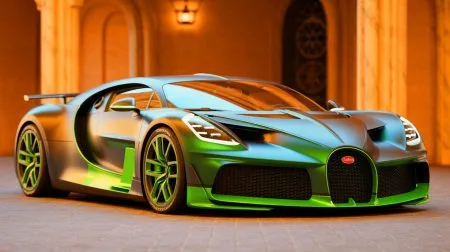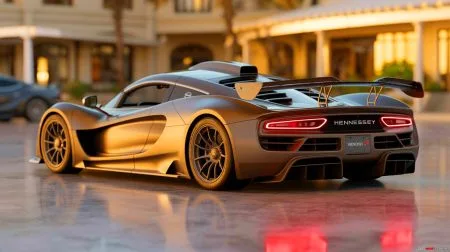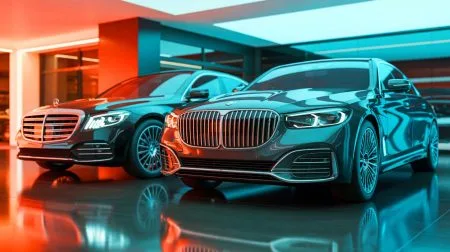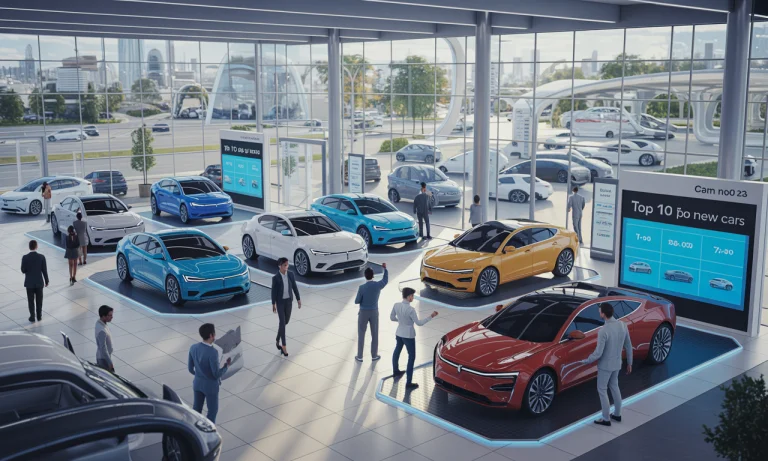Picture this: sunlight streams through the dealership windows, glinting off the polished hoods of brand-new Teslas, Hondas, and BMWs. In 2025’s bustling car market, buyers wield unparalleled choice—hybrid hatchbacks humming alongside electric SUVs, technology-laden dashboards promising comfort and control at your fingertips. But an abundance of options can easily lead to confusion. Savvy buyers know that a successful purchase is never just about looks or trends. Today, finding the perfect ride means balancing dreams with details: budget, safety, efficiency, and long-term value. Whether you’re eyeing the autonomy of a Volkswagen, the rugged dependability of a Ford, or the innovation in a Nissan or Kia, every decision counts. In this landscape, equipped with the latest features and financing options, making an informed move is both an opportunity and a challenge. Here’s how to turn a daunting process into a smooth, confident journey behind the wheel.
Smart Car Buying Strategies for 2025: What Every Buyer Should Know
When Maya, a recent grad, walked into her local Hyundai showroom, she was both excited and wary. The rows of gleaming vehicles, from practical Chevrolet sedans to luxurious BMWs, felt overwhelming. She’d heard stories—friends thrilled with their Toyotas, others regretting hasty Honda purchases. Maya began by identifying what she really needed: a fuel-efficient commuter for her new job across town. She weighed her options, comparing purchase prices, insurance costs, and maintenance estimates. Like many, she wondered if an electric car fit her needs or if a hybrid made more sense. These questions are crucial; they reflect a shift from impulse to intention.
Assessing Your Needs and Priorities in New Car Shopping
Strong decisions start with honest assessments. Maya mapped out her daily routes and determined that long commutes required comfort as well as efficiency. Family drivers might crave the spaciousness of a Kia SUV, while urban dwellers could lean toward the sleek practicality of a Volkswagen hatchback. Factoring in the number of passengers, cargo needs, and intended use helps buyers avoid costly mismatches. It’s also vital to balance the initial purchase cost against ongoing expenses like insurance and fuel—especially as fuel types diversify rapidly in 2025.
| Car Use Case | Best Fit | Example Models (2025) |
|---|---|---|
| Daily Urban Commute | Compact Electric or Hybrid | Tesla Model 3, Nissan Leaf, Volkswagen ID.3 |
| Family Adventures | Spacious SUV (Hybrid or Gas) | Toyota Highlander, Kia Sorento, Ford Explorer |
| Budget-Conscious Buyer | Reliable Used or CPO Compact | Honda Civic CPO, Hyundai Elantra, Chevrolet Bolt |
Decoding New Car Fuel Types and Ownership Costs
The rapid spread of electric and hybrid technology is reshaping the market. Buyers must weigh not just sticker price, but the larger story—fuel savings, government incentives, and, increasingly, personal environmental impact. People like Maya are drawn to hybrids for their city/motorway versatility, while others prefer the zero-emissions promise of a Tesla or Nissan EV. Yet traditional gasoline models remain attractive for their lower upfront cost and broad infrastructure—Ford and Chevrolet’s latest 2025 editions still deliver value for frequent travelers or those in rural areas.
Comparing the Economics of Electric, Hybrid, and Gas Cars
The numbers matter. Up-front price tags for EVs (like Tesla and Hyundai’s Ioniq line) often exceed those of their gasoline siblings. However, owners benefit from lower energy costs and reduced routine maintenance. Maintenance bills for electric cars, thanks to fewer moving parts, are notably lighter—a revelation for budget-conscious drivers like Maya. Prospective buyers should factor in not just energy costs, but government grants, tax breaks, and future resale values, which can differ markedly between brands and drivetrain types.
| Power Type | Running Cost | Expected Maintenance | Standout Models |
|---|---|---|---|
| Gasoline | Medium | Medium | Ford Focus, Chevrolet Malibu |
| Hybrid | Low-Medium | Medium | Toyota Prius, Hyundai Ioniq, Honda Accord Hybrid |
| Electric | Low | Low | Tesla Model Y, Nissan Ariya, Kia EV6, Volkswagen ID.4 |
Advanced Safety Features and In-Car Technology for 2025 Buyers
Modern vehicles have evolved into rolling command centers. On Maya’s test drive, she delighted at the intuitive tech suites in new BMW and Hyundai models—digital displays, voice-controlled navigators, and powerful driver-assist systems. But beneath the flash and connectivity, it’s crucial to scrutinize safety: automatic emergency braking, lane-keeping helps, and blind-spot sensors. In 2025, these are no longer luxuries but essentials, especially for families or commuters facing daily traffic risks.
Prioritizing Peace of Mind with Cutting-Edge Features
With every leap in automotive safety, buyers are empowered to expect more. The latest Hondas and Volkswagens boast AI-driven adaptive cruise control, while Ford and Chevrolet have fine-tuned parking aids and collision avoidance systems. Reading real-world reviews—stories from drivers who avoided mishaps thanks to smart tech—can be more persuasive than any brochure.
The Definitive Step-by-Step Guide to Negotiating and Closing a Car Deal
Buying isn’t just about picking favorites—it’s about knowledge and timing. When Maya zeroed in on her Hyundai, she arrived at the dealership with research in hand. She knew competitors’ prices, the average listing for her chosen model, and had pre-approval ready from a digital-first bank. Confident negotiation often trims hundreds, sometimes thousands, off the sticker price. Dealerships, focused on year-end quotas or launching the latest Kia, Toyota, or Volkswagen models, may further sweeten the deal with extras.
Pre-Approval Power and Certified Pre-Owned Advantages
Securing a pre-approved loan before stepping onto the sales floor can transform the negotiation. Maya’s story illustrates how solid preparation—rate shopping across banks and credit unions—leads to a more affordable and less stressful experience. For those wary of rapid depreciation but wanting reliability, certified pre-owned (CPO) vehicles bridge the gap: a gently used Toyota or Honda with warranty in hand can mean savings and peace of mind. The closing handshake seals more than a deal; it marks the beginning of a new journey.
Essential Maintenance and Ownership Tips for Keeping Your 2025 Car at Its Best
A new car isn’t just a purchase, it’s a commitment. For Maya and countless first-time owners, the journey continues well after the keys are handed over. Following the dealer’s maintenance schedule—especially for complex Tesla or Volkswagen electrics—guards both value and warranty. Simple habits, like checking tire pressure weekly or scheduling bi-annual waxes, preserve the car’s appearance and mechanical condition. In hot climates, timely AC checks and coolant monitoring prevent summer meltdowns, while winter routines keep batteries and fluids in working order.
Real-Life Ownership: Embracing Daily Care and Seasonal Adjustments
Maya’s story, like that of many who chose Kia or Ford this year, is marked by small, daily rituals: a quick vacuum, checking the digital service reminders, topping up fluids after a long drive. Long-term, these efforts yield payoffs in retained value and peace of mind. Seeing a neighbor’s 2020 Honda still gleaming after five years hints at what’s possible with simple routines.
FAQ: Answering Key Questions for 2025 Car Buyers
How do I know if an electric car is right for me?
Assess your charging options at home and work, daily mileage, and available incentives. If you drive mainly in the city and can install a charger, models like the Tesla Model 3 or Volkswagen ID.4 offer savings and sustainability.
Is it better to buy at the end of the year?
Dealerships often run promotions on outgoing 2025 models as next year’s cars arrive. Bargain seekers can unlock significant savings—especially on popular Toyotas, Fords, and Hyundais—by shopping during these windows.
How often should I schedule maintenance?
Follow the recommendations in your owner’s manual. Typically, oil changes and safety checks are set every 10,000km or 6 months. With electrics like the Nissan Leaf, maintenance intervals may be longer, focusing on tires and brakes.
What’s the advantage of certified pre-owned over used?
CPO cars go through manufacturer inspections and often come with extended warranties, providing more security than a typical used car—ideal if you’re eyeing recent BMW, Honda, or Kia models but want to avoid depreciation.
How can I get the best financing deal?
Get pre-approved from your bank or credit union, compare rates, and bring your offer to the dealer. You’ll negotiate from a position of strength and avoid last-minute markups—crucial with Toyota, Ford, and Chevrolet’s popular financing specials in 2025.
Did you like it? 4.4/5 (29)







